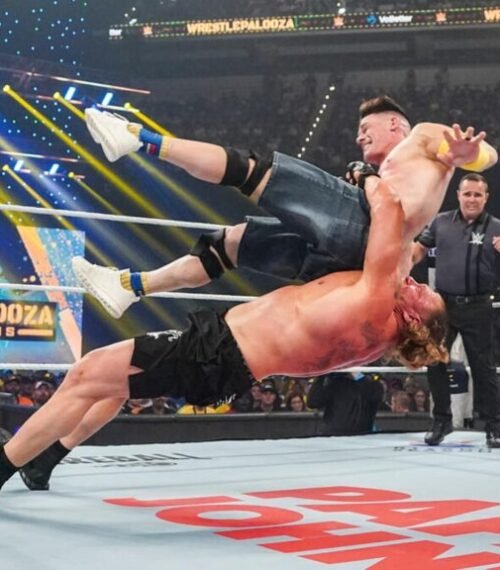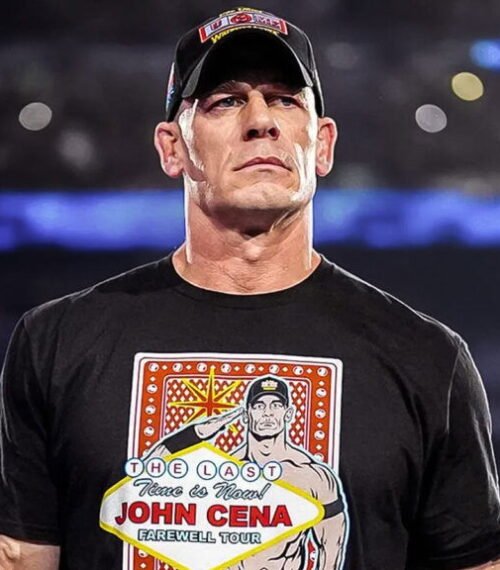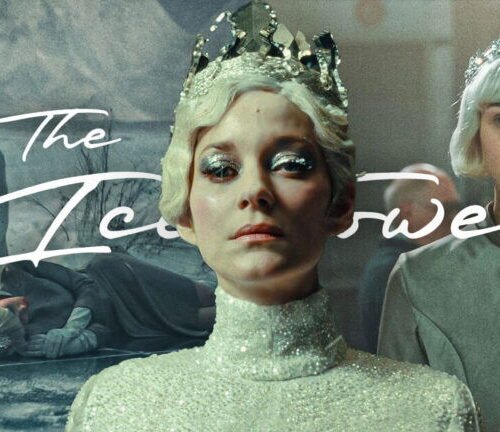Stanley Kubrick’s 1990s classic Eyes Wide Shut didn’t become a cult favorite by accident. Dealing with themes of s*x, jealousy, and the fragility of marriage, as the movie also focused on power, secrets, and exposed how sinister elites pull strings behind closed doors, it became one of the most controversial films.
On the surface, Eyes Wide Shut explored masked orgies and suppressed desires, but Pulp Fiction co-writer Roger Avary believes Kubrick’s original ending for the film was intended to be something far more disturbing. Apparently, Kubrick was digging into something darker, possibly an elite “pedo cult” that mirrors real-life scandals like Epstein Island (via Joe Rogan).
There’s an entire thread that’s been squashed in that film and that’s the two men who follow Cruise throughout the movie… in the final shots of the film you see Tom Cruise and Nicole Kidman in that final scene in the toy store when she’s looking at the Rosemary’s Baby bassinet…
You see those two guys walking off with the daughter. They’re taking her away, [Cruise and Kidman] have given their daughter to the pedo cult. That’s what was supposed to happen at the end of the movie.
If true, Stanley Kubrick’s decision, or forced compromise, changes everything about how we interpret Tom Cruise and Nicole Kidman’s Eyes Wide Shut. Plus, it also kind of makes sense based on the title of the film, which seems to suggest how elites keep their eyes open yet choose to remain blind and detached to the inhumanities and atrocities happening around them.
Did Eyes Wide Shut Secretly Expose Epstein Island in The Final Scene?
If you go by the final cut of Eyes Wide Shut, the story seems rather surreal. The film moves from masked orgies, secret clubs, and marital struggles to a closing scene where Nicole Kidman and Tom Cruise talk about gratitude and forgiveness, choosing to stay together despite everything. To most viewers, this feels like a forced resolution after such heavy topics.
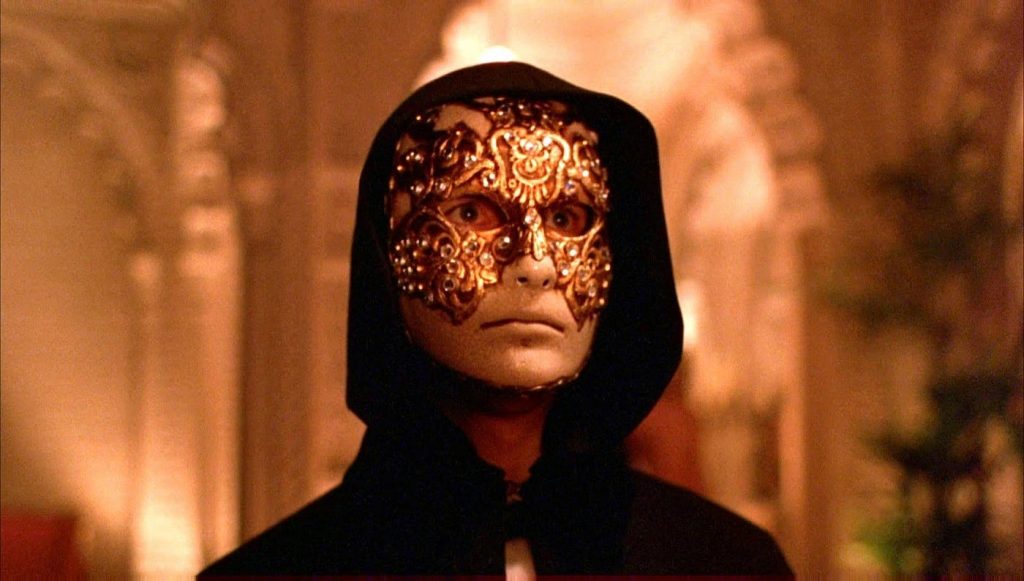
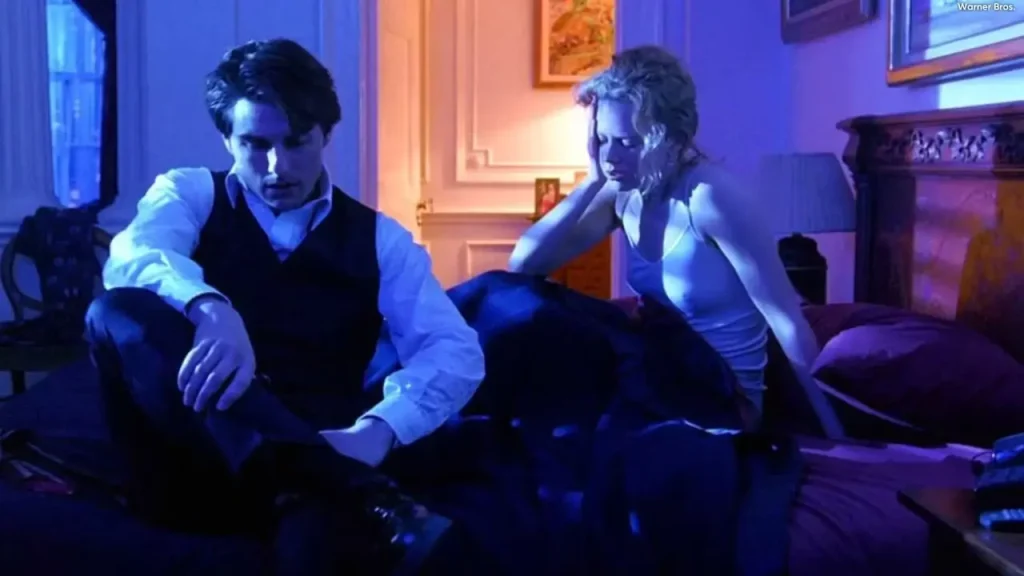
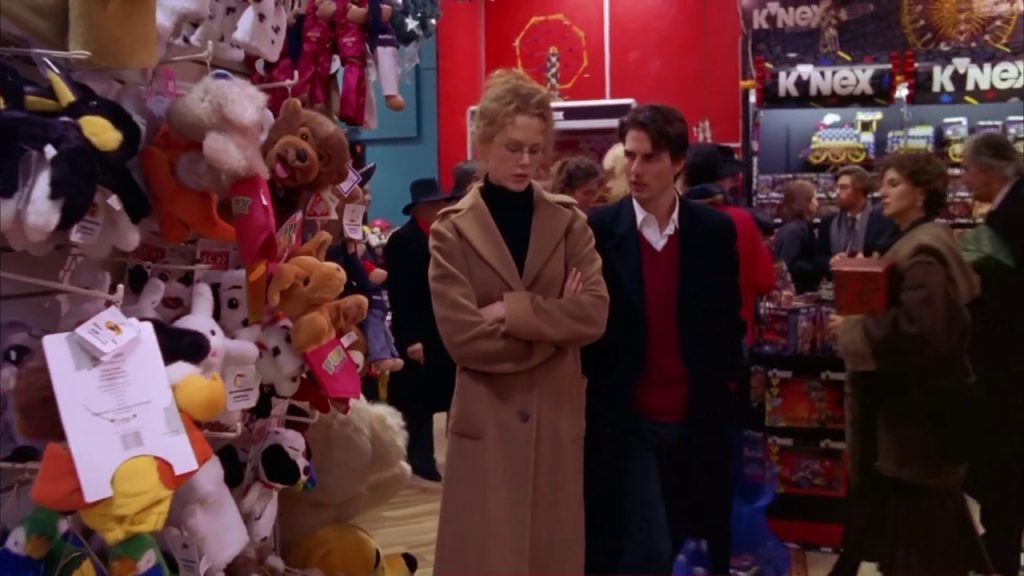
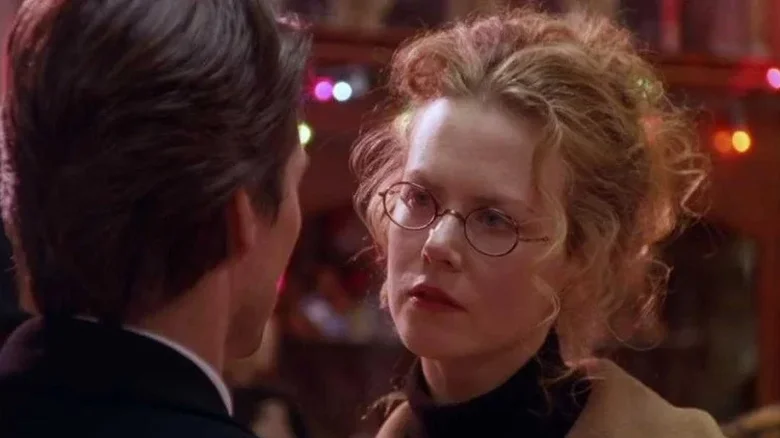
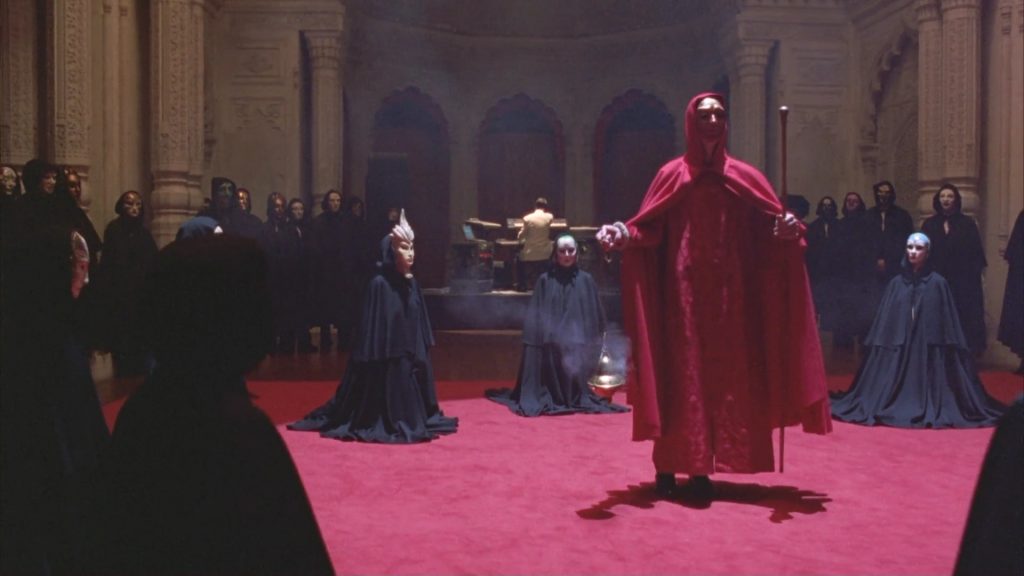
To some, it even felt very much unlike Stanley Kubrick. After all, he wasn’t a filmmaker known for easy answers or tidy endings. His work consistently explored the darkest corners of human psychology, pulling out truths that most would rather keep hidden. So naturally, for a film so layered in secrecy and power, the ending feels strangely tame.
This is where Roger Avary’s claim changes everything. Because appearing on the podcast, he mentioned that the original ending wasn’t the hopeful reconciliation we saw, but instead a chilling twist where Tom Cruise and Nicole Kidman’s characters agree to hand over their daughter to a sinister cult. That alone changes how the movie is understood.
After all, it eerily mirrors what we now know about real-life scandals like Epstein Island. So, how would Kubrick have pulled this off? According to Avary, the film was supposed to have a third-person narration. This is crucial because a third-person voice would have acted like an outside observer, guiding viewers to see what was really happening, rather than letting them rely only on the characters’ perspectives.
I mean, I’ve known this for a long time, but I started really thinking about it over the weekend […] the film is missing a narration, it’s missing a third-person narration that was originally in the movie and that’s because the movie was recut and changed after his death and they will deny.
In films, narration like this can shine a spotlight on hidden truths the characters ignore, helping the audience uncover secrets. So maybe, with narration, Stanley Kubrick was trying to remove the mask (quite literally), on the cult’s true purpose. This way, instead of just hinting at suppressed desire, the story would have carried a much heavier meaning, like children being offered to powerful elites.
The table contains basic details on Eyes Wide Shut:
| Movie | Eyes Wide Shut |
| Director | Stanley Kubrick |
| Cast | Nicole Kidman, Tom Cruise, Sydney Pollack, Madison Eginton |
| Rotten Tomatoes Score | 76% |
| Runtime | 2 hour 39 minutes |
| Box Office Collection | $162.3 million |
In that sense, Kubrick could have been warning us long before Epstein’s name ever hit headlines. Perhaps, the filmmaker wasn’t just making an erotic drama about temptation, but creating a cinematic blueprint of how elites operate behind closed doors. And now, considering how the narration was allegedly cut, it seems to suggest someone didn’t want viewers to connect those dots.
This is why the Epstein Island conspiracy clings so tightly to Eyes Wide Shut. Kubrick may not have been telling us about Jeffrey Epstein directly, but he could have been exposing the kind of shadowy circles that Epstein later came to represent. And if Roger Avary is correct, Warner Bros. made sure that message never reached the public.
Stanley Kubrick’s Sudden Death Fuels Suspicion of Warner Bros’ Interference in the Film
But now, the real twist in this conspiracy isn’t just about what was cut from Eyes Wide Shut. It’s about what happened to Stanley Kubrick himself. After spending nearly 18 months editing the film, Kubrick died suddenly in March 1999, just four days after showing the movie to Warner Bros. executives.
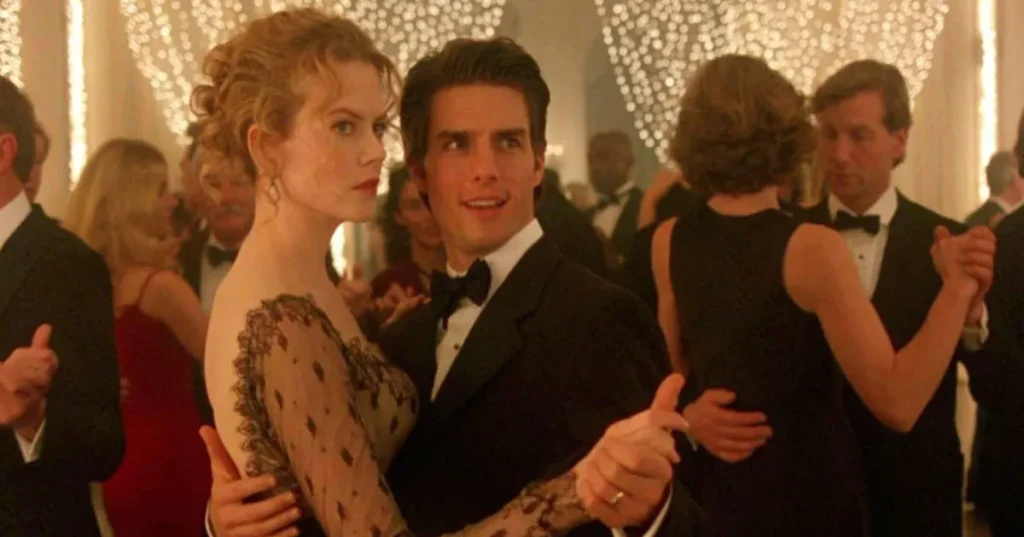
To this day, the official line is that Kubrick delivered his final cut and passed away peacefully. But following all the above-mentioned conspiracies and after connecting the dots, the timing seems far too suspicious to ignore. Plus, Roger Avary also claimed that Kubrick had been fighting with Warner Bros. over the integrity of the film.
During one screening in England, witnesses allegedly heard Kubrick yelling at executives, insisting, “It’s my movie, you can’t cut it, you can’t f**king cut my film.” Days later, he was gone. This account has never been officially confirmed, but its existence adds a chilling layer to the story: was Kubrick silenced before he could reveal too much?
What’s even stranger is Warner Bros’ insistence that “not a single frame” was removed from the film. Yet Avary says that narration was erased, shots were altered, and details were changed. Could it be that Warner Bros. didn’t just tweak the movie, but reshaped it into something entirely different?
If Kubrick was truly planning to expose a network of child exploitation through metaphor and symbolism, powerful forces would have had every reason to stop him. Kubrick’s death, in addition to the rumors of studio interference, feeds into a bigger theory: Eyes Wide Shut was never meant to be seen in the form we have today.
Instead, we got a watered-down version, one that still feels unsettling, but not nearly as explosive as the original vision. The missing narration and the altered ending are seen as proof that the movie was censored before the public ever got to watch it. And this is where the conspiracy becomes impossible to shake.
If Kubrick was really trying to expose a culture of elites using children for their darkest desires, then his sudden death isn’t just tragic, it’s suspicious. Anyway, we may never know the truth behind the film for certain, but the timing of his death ensures the mystery around Eyes Wide Shut will never fade.
Share your thoughts on the truth behind Eyes Wide Shut and its original ending.
Eyes Wide Shut is currently available in the US on Prime Video, Apple TV+.

